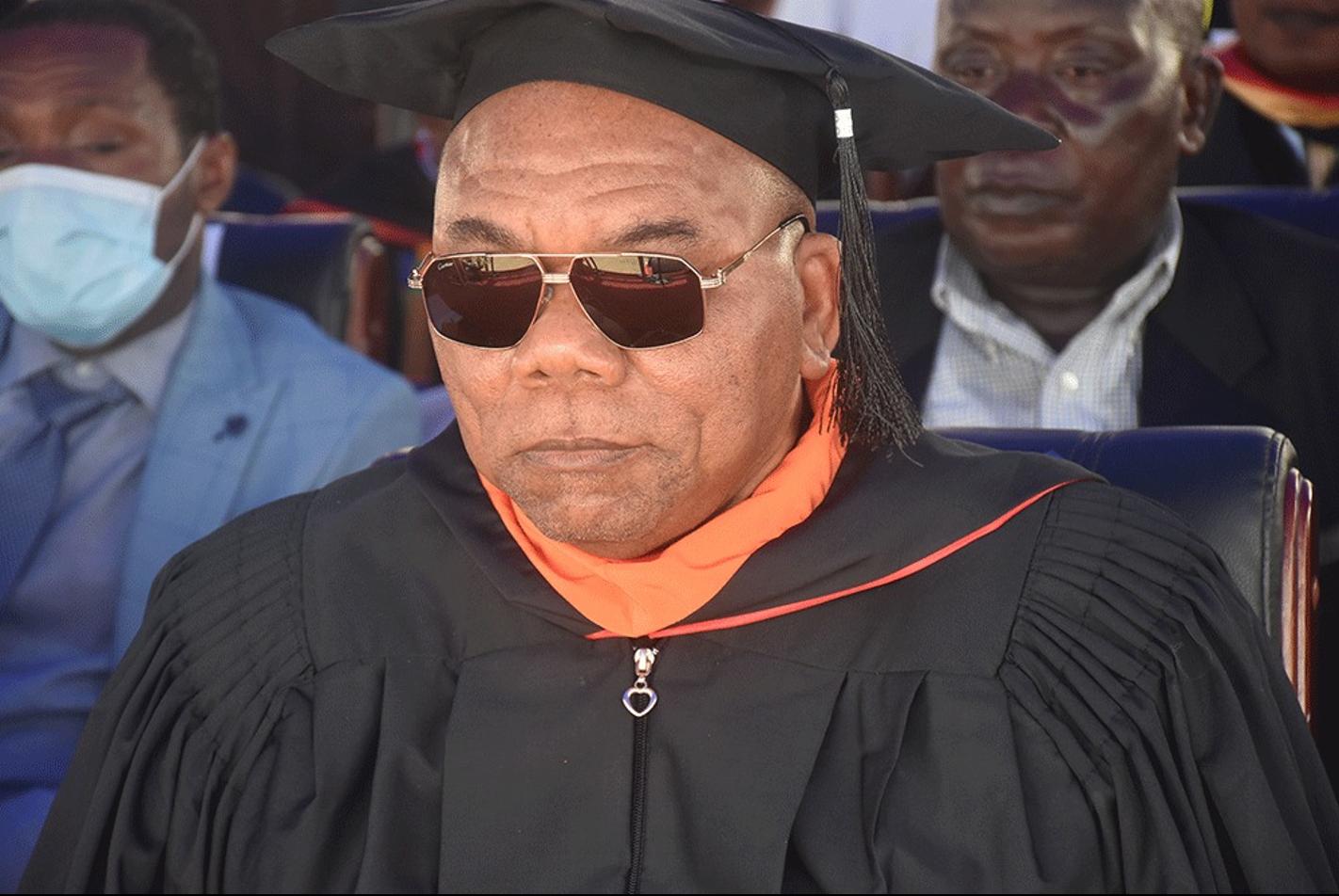
Africa-Press – Liberia. Senate Pro-Temp Albert Chie has challenged graduates of the science college of the State run University of Liberia to sufficiently apply knowledge acquired for the benefit of the Liberian society.
Serving in his role as Guest Speaker of the 102nd Convocation and Commencement program for students graduating from the T.J.R. College of Science & Technology, the College of Engineering, and the W.R. Tolbert, Jr. College of Agriculture & Forestry and School of Nursing and Midwifery March 16, 2022, he cautioned them of their responsibilities to the state.
“As Liberians, you have responsibility to your country. You must be loyal to your country and be nationalistic. Demonstrate high level of love, devotion and nationalism from the depth of your hearts and always fight to protect the sovereignty you deserve.
“Technology, the College of Engineering and the William R. Tolbert, Jr. College of Agriculture and Forestry and the school of Nursing and Midwifery have played major roles in the Liberian society relative to its trained manpower, development of technology, food & nutrition and developing its forestry sector and in providing healthcare. He Graduates of these colleges are among the highest employed personnel both locally and in foreign countries. I doff my hat in appreciation.”
He also stressed that a stable country is first and foremost the fundamental responsibility of all Liberians in creating a wholesome and functioning society. Because, according to the Senate Pro-Temp, in the absence of stability and guaranteed security, existing and potential investors flee and even send into exile the few of our citizens who are significantly contributing to the development process.
The University must strive to maintain stability both on her campuses and in the nation so that students you teach and graduate will benefit from this and enjoy the education you sacrifice to give them.
Tainting the image of the country
In further statement, Senator Chie said, while there are tremendous efforts made in maintaining peace, disappointingly, few detractors taint the image of the country. “Let all of us be circumspect of what we say, do, and write. We hurt our country that we should be protecting and defending when we engage in practices that will smear its image and credibility.”
In further comments, the Grand Kru Senator who is also a former professor at the University of Liberia challenged students to persevere as it the determinants to success. “The ability to be patient, try over and over at finding solutions to problem, is very important in life (You see Manneh Weah is President today? He tried over and over with patience).”
He also stressed the need for graduates to develop their ability to write which he believes will carry them far in their endeavours. “I learned this lesson in undergraduate and graduate schools, and experienced the benefit in my career, including the Legislature.
“I taught a course in Engineering and Technical writing at this institution. All students of the Engineering Division had to do this course. I was the only instructor for it for a very long time. I told my students that you learn how to write by writing. And no matter you profession in life, you will write. And your ability to write will carry you very far.
“My fellow students, whether you are an electrical engineer, a nurse, a midwife, geologist, civil engineer, agriculturist, mechanical engineer, and so forth; an profession, you will have the responsibility to write or review or read the reports of others wherever you find yourself in life, most especially if you have a supervisor position. If you don’t have, please start the habit of writing and reading. Don’t be satisfied with the saying: “Liberians don’t like to read” and never be in that group. It is never late. You will never know where destiny will lead you in terms of work. It is often said: “It is the little thing that matters.”
He further challenged graduates to use their various professions to grow the Liberian economy and to do that is to export more than we import goods and services; or at the minimum, try to achieve a balance between imports and exports.
“Only businesses can help the Government achieve this. You often hear the slogan: “Liberianization Policy; Liberians should not be spectators in their own economy”. Yes, we agree, but let us take a look at ourselves and the situation,” he said.
According to him, over the last several years the Government has supported the Liberian private sector through a variety of programs, especially Liberian-owned businesses but unfortunately, Liberians will continue to remain in a state of denial, that there is something wrong with Liberians in running business.
“How do you explain the fact that a Fula man will come from Guinea, start with a waiter market, move to a shop, then to a store and then enter into importation and supply of the market on a large scale? Same issue with the Lebanese; some will come in this country without a penny, start selling in his friend’s store, later down the line, owns several stores; and remain in business and make millions,” he said.
He frowned on Liberian businesses for failing to thrive and having a very short life-span but later ‘erroneously’ blame that on Government’s inability to create the enabling environment for these businesses to thrive.
“This assertion is not accurate. Let me cite a few instances of the intervention of the Government to empower Liberian-owned businesses. You have probably heard about the tens of millions of US Dollars the Central Bank of Liberia loaned Liberian-owned businesses through the Liberia Business Association during the tenure of Governor Mills Jones. What has happened to those businesses which received the loans and what is the status of the loan re-payment? The Liberia Bank for Development and Investment (LBDI) is the only Liberian-owned bank among the many commercial banks in the country. Over the years, this bank has provided loans to many Liberian-owned business to help them to grow and stimulate the economy.
“Some of these loans were in technical areas like road construction, agriculture, food processing, petroleum trade, etc. If not for the intervention of the Government and the IMF, the bank would have collapsed a long time ago. What has happened to the loan re-payments and the growth of these businesses? “
For More News And Analysis About Liberia Follow Africa-Press





